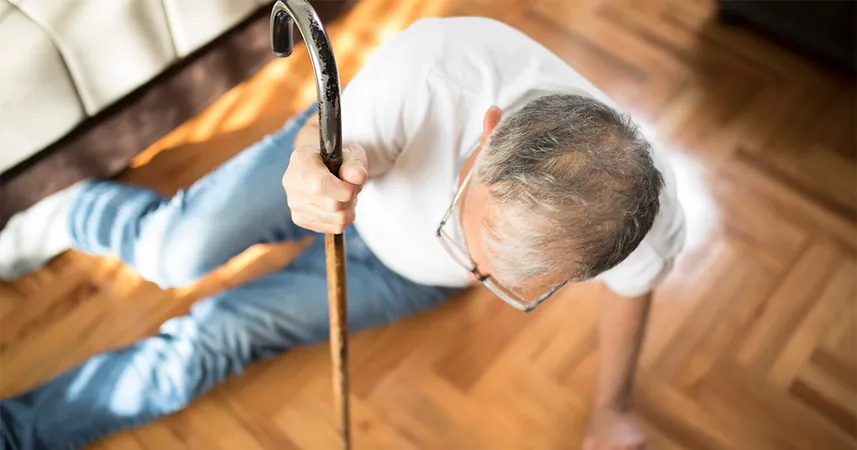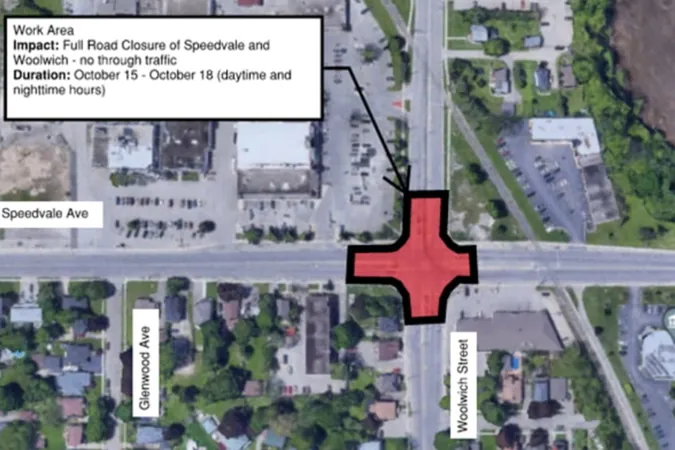
Shocking Link Between Falls and Alzheimer’s Disease Discovered!
2024-10-01
Groundbreaking Study Unveils Alarming Statistics
In a groundbreaking study, researchers from Brigham and Women's Hospital have unveiled alarming statistics about the connection between falls and Alzheimer’s disease in older adults. The research, published in JAMA Network Open, analyzed data from over 2 million seniors who suffered traumatic injuries, revealing that a staggering 10.6 percent of those who fell were later diagnosed with Alzheimer’s disease or related dementias. The implications of these findings could change how we approach elderly care.
Analysis of Medicare Data
The comprehensive analysis, which focused on Medicare Fee-for-Service data from 2014 to 2015, indicated that injuries sustained by half of the participants were due to falls. These individuals were significantly more likely to receive a dementia diagnosis within just one year following their injuries. This underscores a troubling cycle: cognitive decline can lead to an increased risk of falls, while the trauma from these falls may accelerate the progression of dementia, making it more likely for these individuals to face cognitive challenges in the future.
The Importance of Early Detection
To combat this concerning trend, the researchers advocate for the implementation of cognitive screenings in older patients who suffer injurious falls, especially those requiring emergency department visits or hospitalization. Early detection is crucial, yet the challenge remains significant due to systemic disparities in access to primary care for the elderly population.
Challenges in Emergency Settings
Despite the critical need, Alexander J. Ordoobadi, the study's first author and a resident physician, notes that there is often insufficient time for comprehensive screening in emergency settings. "After an injury, older adults should ideally follow up with a primary care provider or geriatric specialist who can monitor their cognitive health; however, many lack a regular physician or access to geriatric care," he emphasizes.
Need for More Healthcare Professionals
The study brings to light an urgent need for more healthcare professionals equipped to provide necessary assessments and care for aging adults, especially following fall incidents. As researcher Molly Jarman highlighted, recognizing falls as potential indicators of upcoming cognitive decline presents a unique opportunity for early intervention, which could dramatically improve treatment strategies for older adults.
Conclusion and Future Implications
With the increasing aging population, understanding the complexities between physical injuries and dementia is more vital than ever. Ensuring early detection through better healthcare access and screening protocols could lead to proactive management of cognitive health, offering hope to millions facing the dual challenges of aging and dementia.
Stay Tuned for More Updates!
Stay tuned for more updates and insights into how we can better safeguard the health and well-being of our aging population!









 Brasil (PT)
Brasil (PT)
 Canada (EN)
Canada (EN)
 Chile (ES)
Chile (ES)
 España (ES)
España (ES)
 France (FR)
France (FR)
 Hong Kong (EN)
Hong Kong (EN)
 Italia (IT)
Italia (IT)
 日本 (JA)
日本 (JA)
 Magyarország (HU)
Magyarország (HU)
 Norge (NO)
Norge (NO)
 Polska (PL)
Polska (PL)
 Schweiz (DE)
Schweiz (DE)
 Singapore (EN)
Singapore (EN)
 Sverige (SV)
Sverige (SV)
 Suomi (FI)
Suomi (FI)
 Türkiye (TR)
Türkiye (TR)